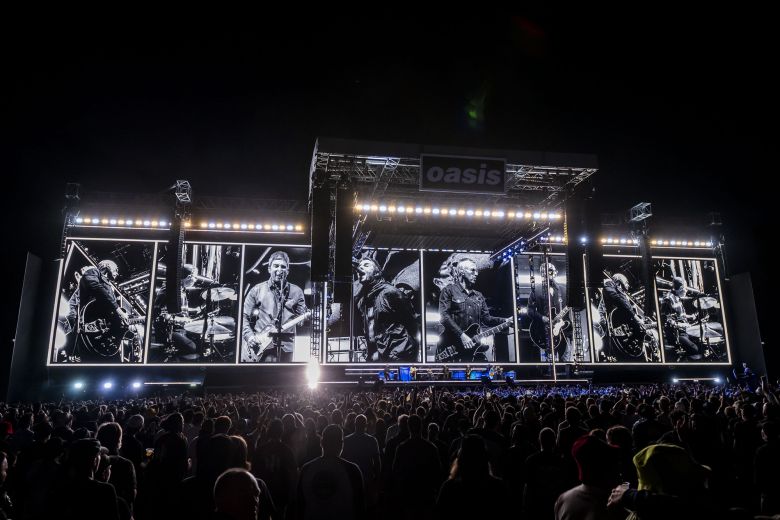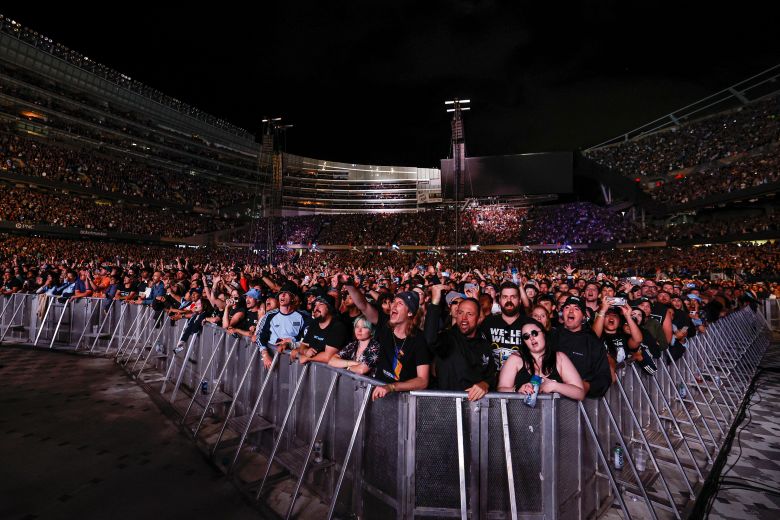“DC, Fairfax, wherever the f**k we are,” Liam Gallagher bellowed in a mid-sized college basketball arena five days before Christmas, as Oasis’ cover of The Beatles’ “I Am The Walrus” wound towards a swirling crescendo. “You were good, but not as good as us.”
That 2008 show – in Fairfax, Virginia, for the record – wasn’t meant to be the last time Oasis played America, but it was.
The legendary antagonism between Liam Gallagher and his older brother Noel had already put the band on the cusp of rupture by the time they took the stage in Virginia, and the pair had become increasingly distant.
“I never really saw them together, except on stage,” Matt Costa, a musician who opened for the band on the tour, told CNN. To superfan Kyle Bogucki, who was in attendance that night, “there was something already off before the show began.”
Months later on the same tour, a backstage blow-up between the feuding Gallagher brothers ended one of the craziest stories in music history – a hot-headed tale of creativity, confrontation, hubris and excess that likely couldn’t be written today. That fight, 16 years ago on Thursday, ended the band. But in truth, they had ended years earlier, somewhere in the Nineties, when the electric energy of their breakthrough was lost, little by little, in power plays and politics and substance-fueled ego trips.
Their break-up felt furious and final. It started a 15-year cold war between the siblings punctuated by tension, speculation and, occasionally, outright hostility.
But last year, out of thin air, came a ceasefire. Oasis announced a once-unthinkable reunion tour that has electrified the UK this summer and arrived in America with a show Thursday night at Chicago’s Soldier Field. The band next play two shows each at MetLife Stadium in northern New Jersey and the Rose Bowl in Pasadena, California.
These are the biggest US shows they’ve ever played – and they matter, because the band’s history in America is complicated and fraught.
At one moment in Oasis’ hectic heyday, they seemed on the cusp of replicating the transatlantic breakthrough of their musical idols, The Beatles, three decades earlier.
But they never seemed to want it enough. And at times, America didn’t seem to want them. When they announced the 2025 US shows, the Gallaghers gave the nation an ultimatum: “America … You have one last chance to prove that you loved us all along.”
If it happens, it could make this tour one of the most unlikely comebacks in music history.
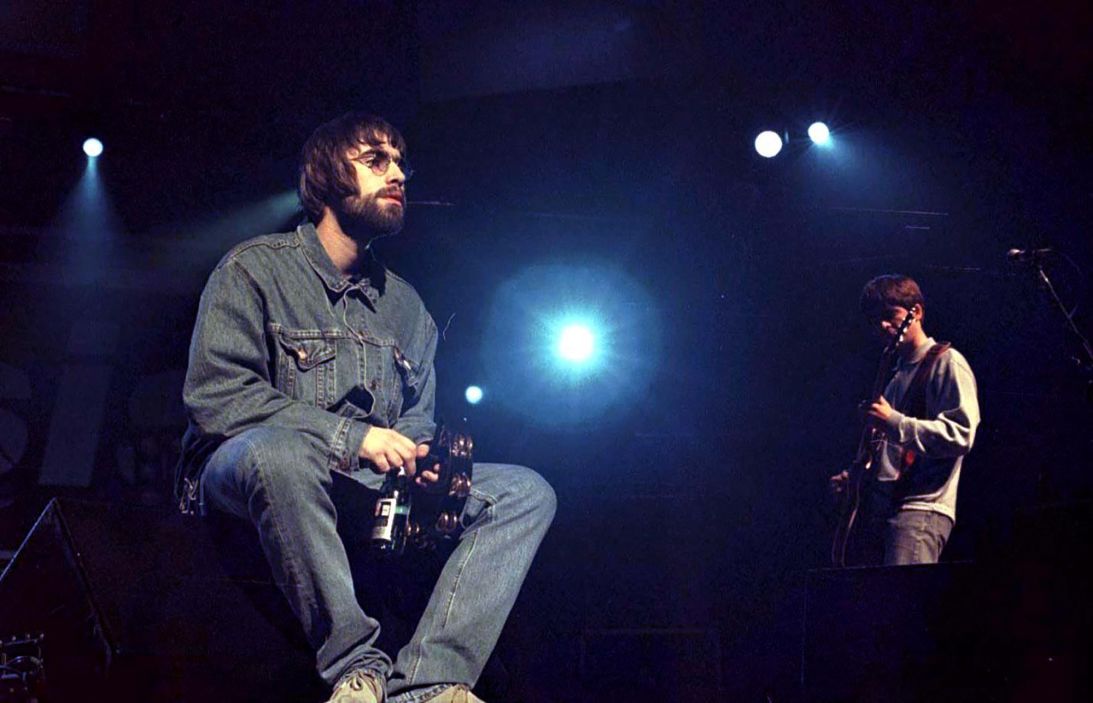
The thing about America, Noel Gallagher said at an event two years ago, when an Oasis reunion still felt excruciatingly out of reach, was this: “They couldn’t handle the fact that we didn’t give a f**k about anything.”
“I think that’s the reason we’ve never really had a number one album in America,” the Oasis co-founder said in remarks captured by invited media. “They wouldn’t go the extra mile for us because we wouldn’t go the extra mile for them.”
At home, the Gallaghers are as close as two men can get to Rock God status, and the raucous crowds they’ve enjoyed this summer in London, Manchester, Cardiff and Edinburgh have let them know it.
Their second album, “(What’s the Story) Morning Glory?” is the fifth-best-selling album in UK history, and their third, “Be Here Now,” remains the fastest-selling ever. Sing-along anthems like “Don’t Look Back in Anger” and “Wonderwall” are played at virtually every wedding and by virtually every busker in the country.
To their British compatriots, not giving a f**k is what made Oasis stars. Their authenticity has always been in their indifference; the more they care, the less Oasis they become.
But there were always two Oases. In America, the band never really clicked with audiences. They amassed a dedicated fanbase, but their style – or rather, their anti-style – was an awkward fit with the mainstream. Their total indifference to celebrity set them aside in a country where celebrity status is sacred.
“They would have probably had to do a lot of hard nonsense to conquer America,” David Sardy, who produced Oasis’ last two albums and much of Noel’s solo work, told CNN. “There were a few gatekeepers you had to get past in America, and America was pretty (socially) conservative.”
Unlike The Beatles, Oasis arrived in the US with trademark sneering entitlement. They revealed a schism in what it takes to be a star on each side of the Atlantic. “I just don’t think that connected culturally in the same way that it did in the UK,” Sardy said.
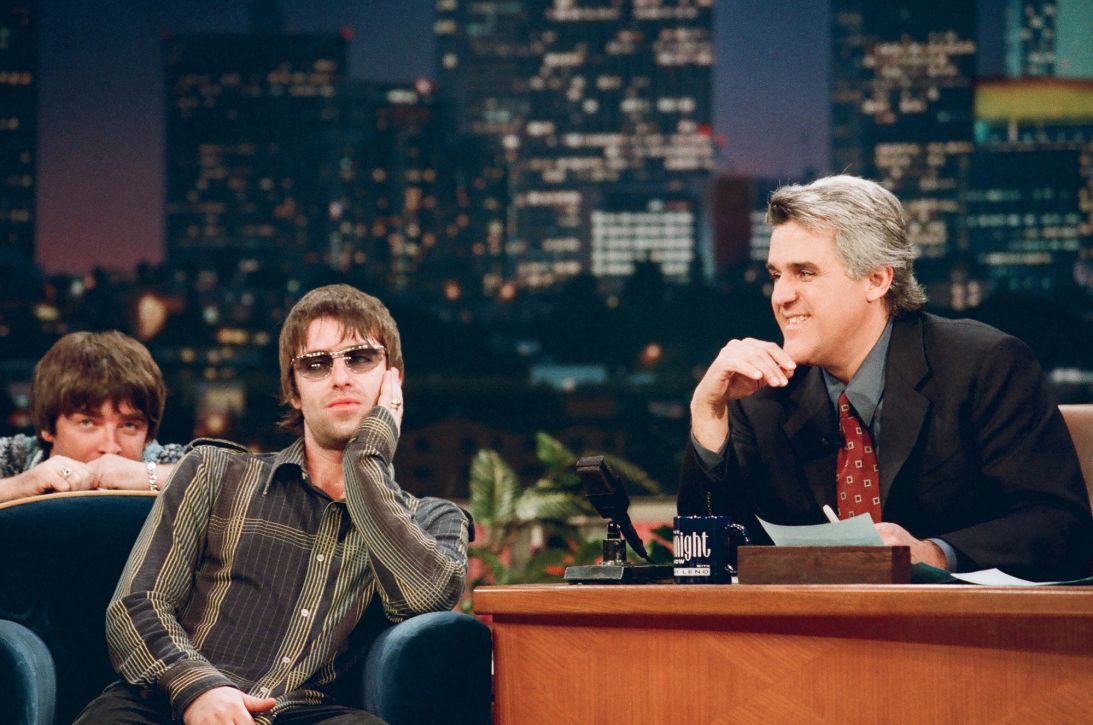
The Gallaghers’ combination of attitude and talent stretched the limits of creative partnership to epic and unpredictable heights. Between them, the gangly mods kept alive the fading tradition of feuding musical geniuses, a path that Paul McCartney and John Lennon had paved before them. They fought and sulked and walked off stage, and for a few fleeting years in the mid-1990s, Noel’s songwriting ability and Liam’s piercing voice combined to create gigantic choruses that defined a restless era in alternative music.
And much of their lore was written in the US.
“America was a mythical land to the band,” Iain Robertson, their former bodyguard and road manager on their mid-’90s tours, told CNN. Landing there “was a sort of gobsmacking experience,” he said, for two boys from a working-class suburb of Manchester who had barely explored the world.
Robertson was brought into the band’s inner circle after a 1994 show at LA’s famous Whisky a Go Go bar went catastrophically awry. At the most important show of their career to date – an opportunity to win over a crowd at a prestigious US venue – a sleep-deprived and drug-fueled band played different songs over each other, and an irate Liam threw his tambourine across the stage towards his brother. The scene was so catastrophic that Noel, in the hours that followed, grabbed the band’s cash and fled for San Francisco, where he holed up with a fan.
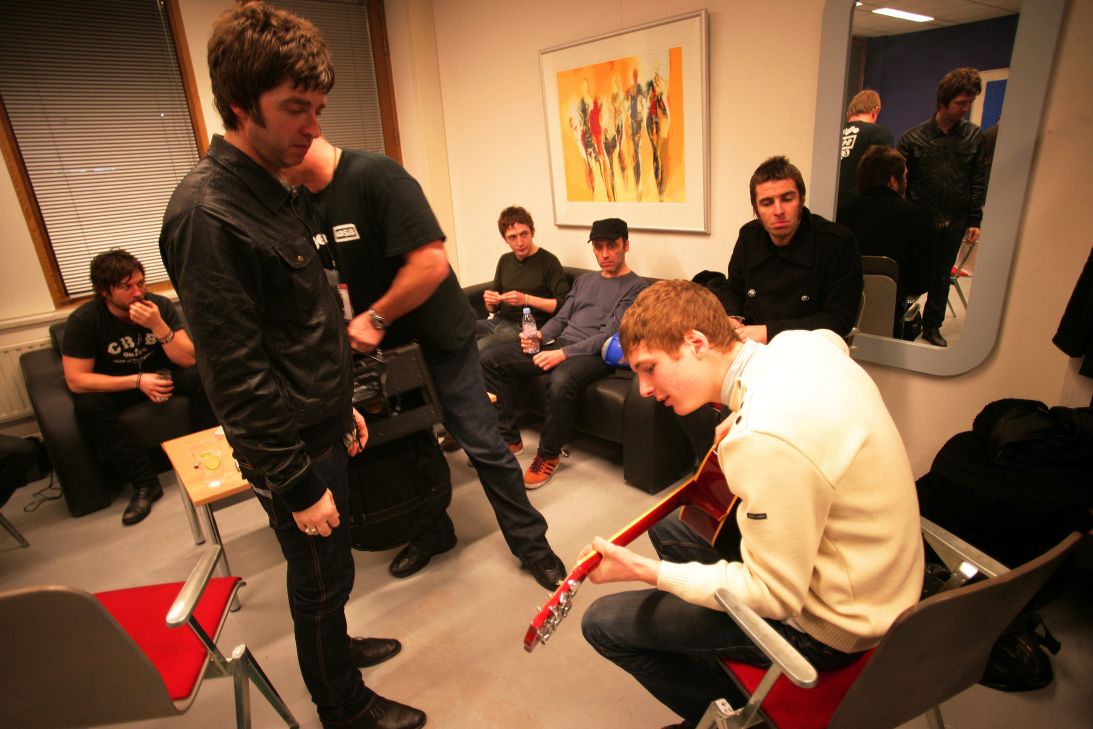
Robertson’s job was to get the Oasis show back on the road, and it wasn’t easy. He said he dreaded having to wake either brother up for a media commitment one or two hours after they had rolled into bed. His trips to Liam’s room, where he had to contend with a furious and hungover rock star – were particularly fraught.
But the pair enjoyed exploring the States, a country where they could still enjoy near-anonymity even after the explosion of their first album, “Definitely Maybe,” in Britain. They played to around six people in Salt Lake City, Robertson said. Before the show, he recalled Noel busking on the street and earning about a dollar in tips. At one band meal, Liam announced with outsized pride that he’d eaten a shrimp for the first time in his life.
The next time the band arrived in the US, between the monstrous success of their second album and the release of their grandiose third, transatlantic success felt there for the taking. Their crowds grew quickly between each of their three trips through the US in 1996, as the band graduated from clubs to theaters to arenas. But the Gallaghers never seemed to want it enough.
“Nirvana, Metallica, R.E.M. were all cresting around the same time,” Sardy notes. And while they inhabited a similar rebellious spirit, he said, even Kurt Cobain “still showed up and did “MTV Unplugged’.”
Showing up was never Liam’s strongest attribute. Oasis’ appearance on the MTV showcase, which had become a rite of passage for rock acts, descended into infamy when Liam pulled out at the last moment, forcing Noel to step in and sing. Liam instead heckled the band from a balcony overlooking the stage.
The frequently juvenile frontman would intentionally sabotage many of the group’s important live performances. At the 1996 MTV Music Awards in New York City, he sloshed through a verse before changing the lyrics to “Champagne Supernova” from “in the sky” to “up your bum.”
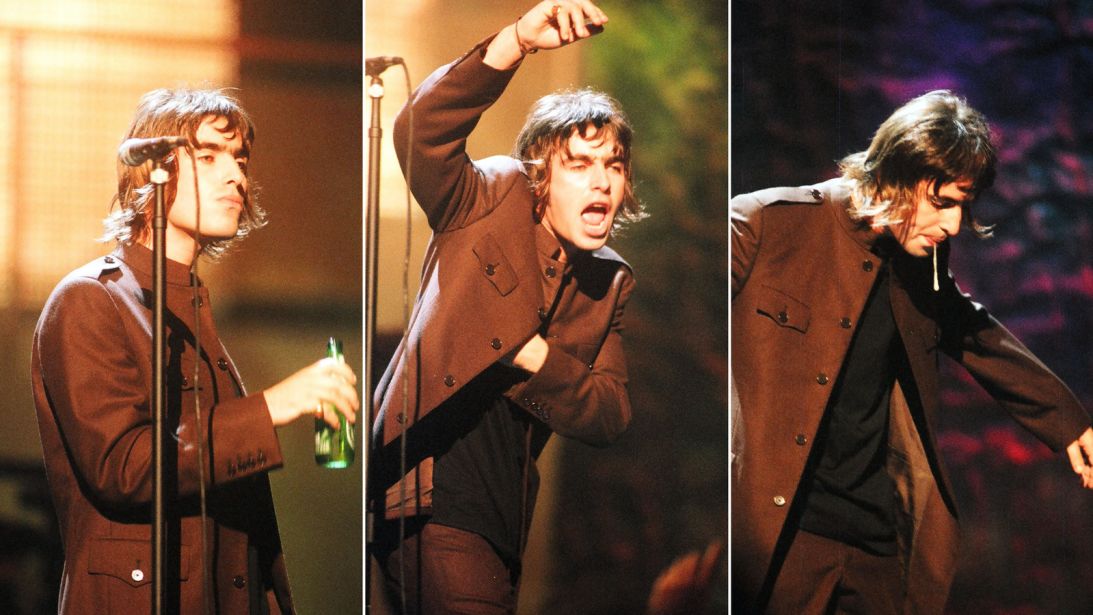
“Those were moments when the whole of the US is watching,” says Sardy, adopting the tone of a disappointed parent.
The Gallaghers didn’t respond to CNN’s requests for an interview for this story.
“I don’t think they ever put the effort into getting to America,” Justin Baren of The Redwalls, a rock band that opened for Oasis in both the UK and the US on their 2005 tour, told CNN. “They were never trying to ‘break’ anywhere, right?” added his bandmate Ben Greeno. “It never seemed like their thing.”
“We got off on the wrong foot with Americans because they are extremely professional corporate people and we kind of treated that attitude with contempt,” Noel told CNN in 2012. He recalled the group guffawing at a magazine’s request for an eight-hour photoshoot. “We just couldn’t understand why you have to enter into theatrics with Rolling Stone magazine on a day off, because we were sh*t-kickers from the streets and didn’t have time for that.”
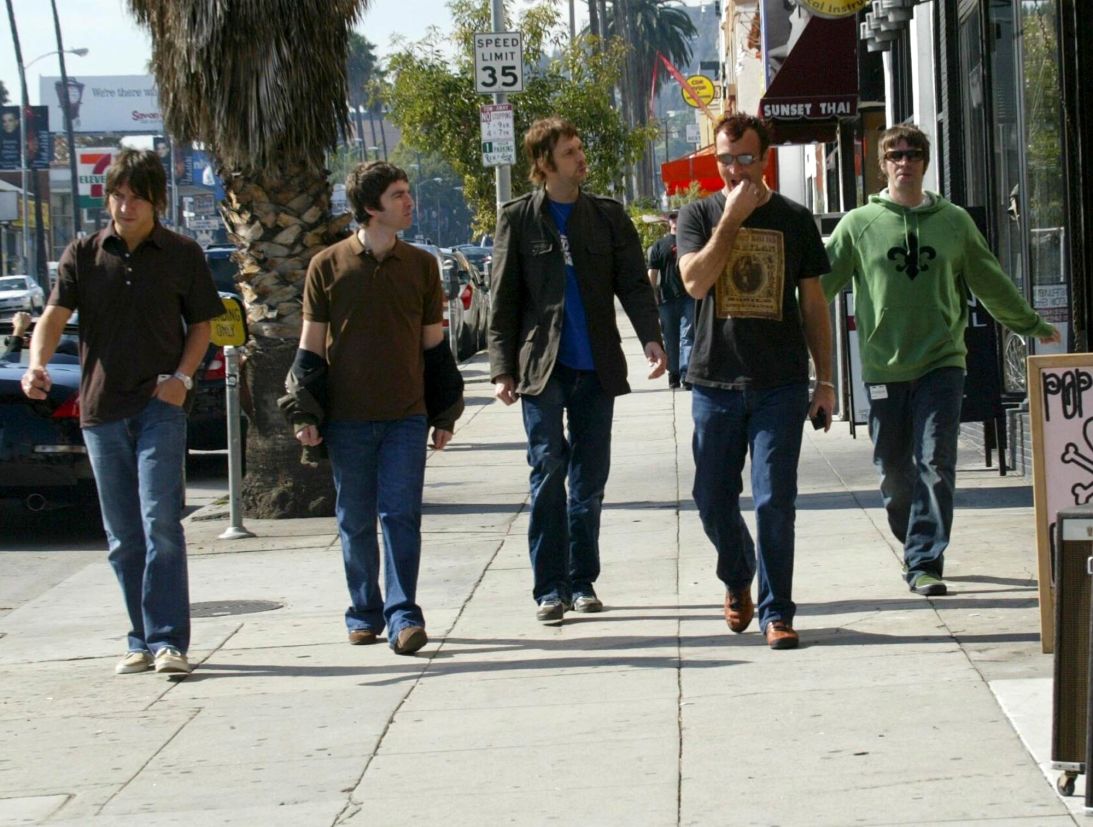
Onstage, Oasis have somehow always made sense. Liam is a tornado of affable douchbaggery, rolling from insult to confrontation to huge chorus, while Noel strums a few paces off-center, a wily smirk the only flicker of emotion on his face. For long stretches of their concerts the pair barely seem to know each other, and that’s been how they like it.
But offstage, their creativity clashed in spectacular ways.
As the band partied into the early hours, Noel would often disappear from view. He wrote the band’s debut single “Supersonic” while the other members ate Chinese take-out; he wrote “Talk Tonight,” an uncommonly reflective and gentle tune about longing and loneliness, while AWOL after the LA meltdown.
“I’ve never met anyone who writes that many songs,” Sardy said of Noel, the creative force of the band. “He’s always writing. He’s never stopped.”
It also was, Robertson recalls, a “very closed process.”
Robertson was one of a close circle to hear the first iteration of “What’s The Story (Morning Glory),” the band’s landmark second album, sung by Noel with an acoustic guitar on the group’s tour bus.
“It was such a powerful experience,” he said. “Bonehead (the band’s guitarist) was in tears.”
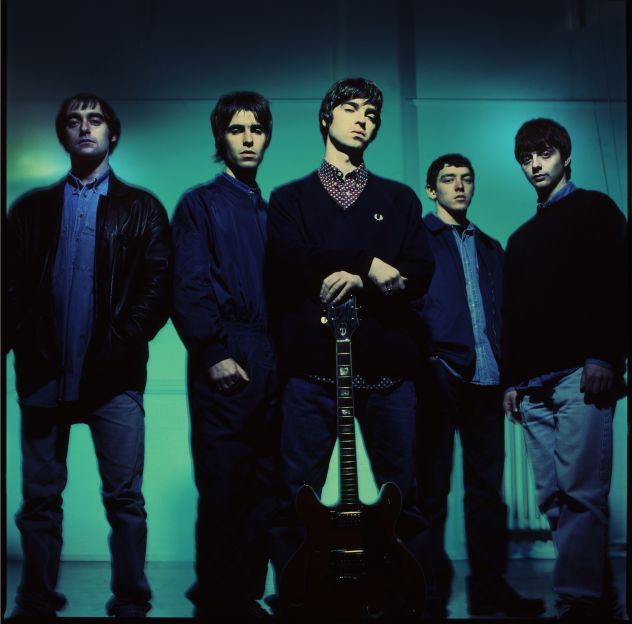
Competition often fueled the Gallaghers. Liam, when caught on a bad night, would frequently taunt his big brother onstage. At other times there was a brotherly charm to their rhythms. Noel wrote the word “shine” into as many tracks as possible, because he loved the affectation – shhhheeeeiiiiiiinneeee – that Liam ripped when he sang it.
But Liam was kept far from the creative process: his job was to be a rock star. “There’s never been a room where Liam Gallagher’s in there and you don’t know it,” the Redwalls’ Baren said.
Oasis often seemed to teeter at the edge of self-destruction. Robertson’s own time with the band was short-lived; on the road in the UK, Liam unexpectedly launched himself from a moving car, causing Robertson to do the same. As they grappled, “Liam just punched me in the face,” he recalled. “Then he punched me in the face again.”
“He said: ‘you’re f**king fired,’ jumped back into the limo, and they disappeared,” Robertson said.
This has always been the Oasis experience: for fans, for employees, and ultimately for the Gallaghers themselves. The ride is chaotic and memorable, but it will eventually leave you bruised and bloodied on the roadside.
“Liam has this kind of knee-jerk emotional integrity about living his life his way,” Robertson said. “He signed up to be a rock and roll star and was going to be the best rock and roll star that there’s ever been.”
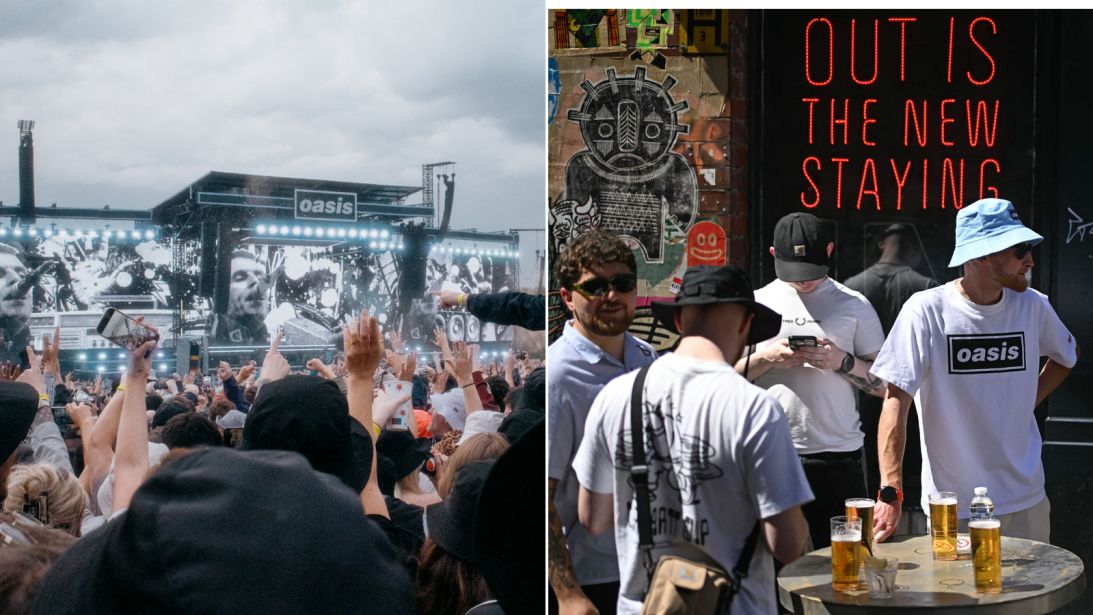
Still, belting out anthemic choruses has long been the most effective way to get lads to share their feelings in front of each other. So Oasis’ comeback, at a time when young men are more lonely and more single than when they split up, has been predictably raucous.
For weeks, it felt like Oasis were in daily competition with the very strand of British misery they were born from. At their homecoming shows in Manchester, fans without tickets gathered on a hill overlooking the venue until the council intervened and put up a wall blocking the view. In Edinburgh, Liam launched an on-stage tirade at the local authority after it described the band’s fans as “middle-aged,” “rowdy” men who “take up more room” than other fanbases.
At their gigs in London’s massive Wembley Stadium and in Manchester’s Heaton Park, lads cried and moshed and showered each other in beer and cider and more questionable liquids. Every string of nonsense from Liam’s mouth was met with applause and joyous laughter.
Through three decades the band never changed their musical style. It’s the opposite of Taylor Swift’s Eras Tour, because there’s only ever been one Oasis era. And this is the payoff: a genuine throwback experience to a simpler, pre-social media time when things seemed better. The band got the message: Their current setlist consists mostly of mid-’90s favorites and none of the later catalog.
“What is the response to AI and streaming? It’s handmade music that sounds nothing like a computer ever got anywhere near it,” Sardy said. “I guarantee you that Oasis’s tour is spawning a thousand incredible bands.”
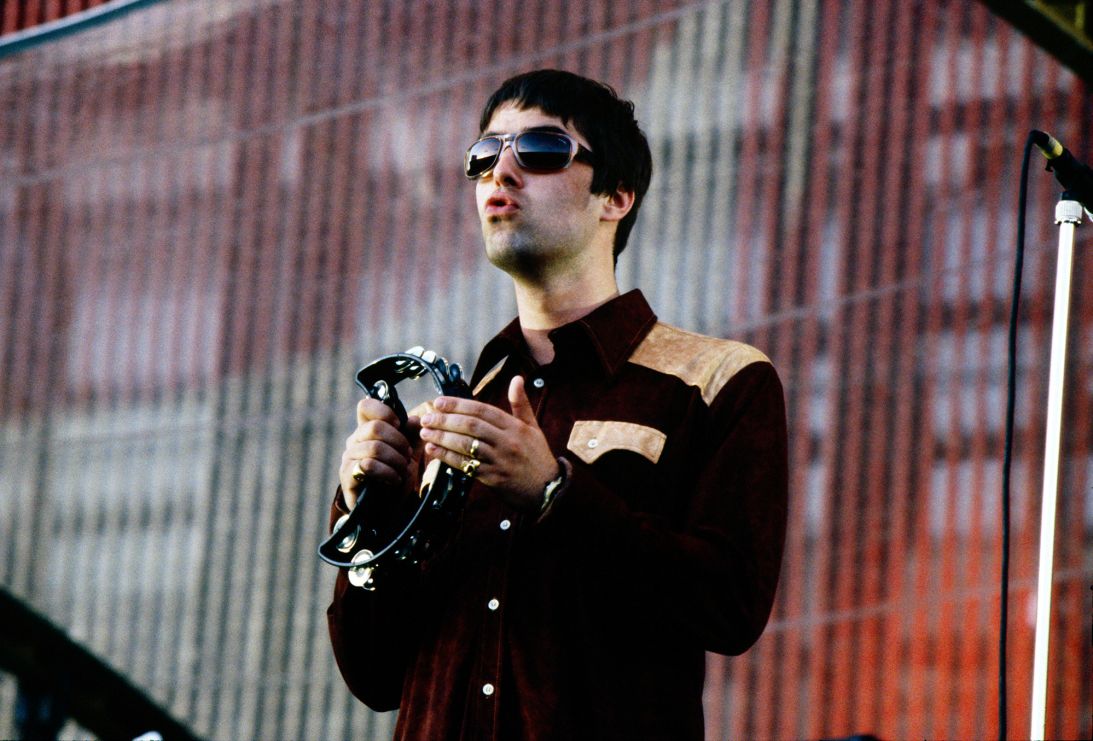
Diehard fan Dan Hanzus will be traveling from Los Angeles to see Oasis in New Jersey with a group of high school friends before catching the band a second time at the Rose Bowl.
“I was 16 or 15 when ‘What’s The Story (Morning Glory)’ came out. I don’t get to see my friends as much anymore. So the fact that we can use this concert to get together and celebrate this music that meant so much to us – it’s a special thing,” he told CNN.
“It’s not just a reunion concert or a cash grab,” added Hanzus, a football podcaster who has caught the band on each of their previous US tours. “It’s a cultural moment that’s happening.”
Remarkably, even the Gallaghers seem to be enjoying this tour. Noel glowed about his younger brother in a rare interview with UK radio station talkSPORT last week, saying he’s “proud” of Liam – the man who had previously taken to calling Noel a “potato” on social media.
“It could be that part of the reason why this is working so well right now is they actually had a nice break and can maybe appreciate what’s amazing about each other,” Sardy said.
Now, over five US shows that sold out within hours, the brothers get a chance to settle a complicated score, And for their hardcore American fanbase, that brings a vindication that has been decades in the making.
“If you grew up listening to alternative rock in the Nineties as I did, in a post-Nirvana, post-grunge era, (it) wasn’t exactly cool to have heart-on-the-sleeve lyrics like ‘Live Forever,’” Hanzus told CNN. “They were coming from a different angle than most of the stuff I was hearing on K-Rock in New York in 1995.”
“Stateside, they kind of were a footnote of the Nineties,” he said. “But I always thought that they were more than that.”
Oasis probably couldn’t become rock stars today. As music becomes increasingly professionalized and artists more stage-managed, there is little room for narcissistic, prickly singers who could not care less what you think of them.
But ticket sales show there’s still room in America for Oasis. The door was closing on their window to return, but they have rammed through it — still angry, still immature, but seemingly happy together at last. Maybe, after all, they really will live forever.

